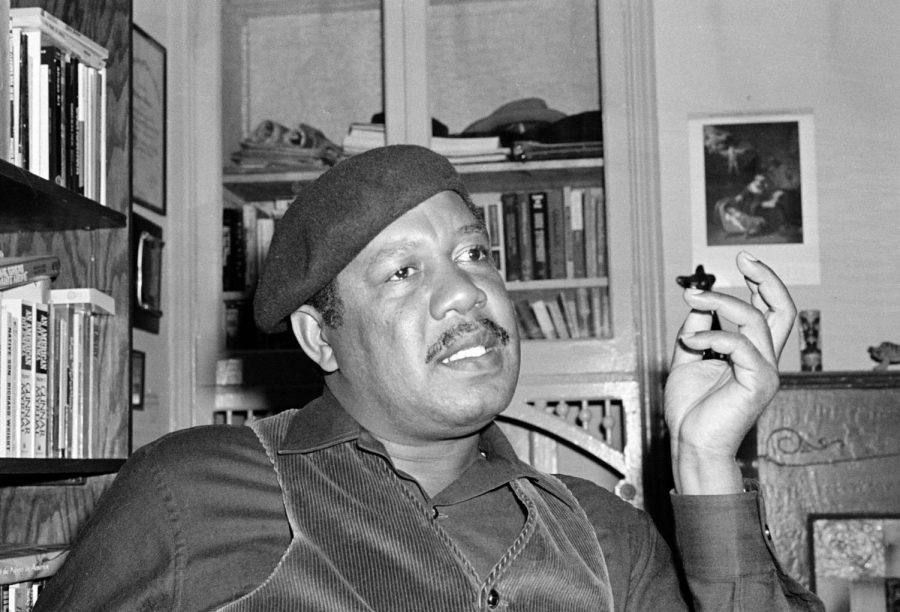Louisiana native and author Ernest Gaines to appear on U.S. stamp
Novelist Ernest Gaines, who wrote “The Autobiography of Miss Jane Pittman,” is pictured in his San Francisco home on April 12, 1977. Gaines, whose poor childhood on a small Louisiana plantation inspired stories of black struggles that grew into universal tales of grace and beauty, will be depicted on a U.S. postage stamp to be issued in January 2023.
November 4, 2022
Novelist Ernest J. Gaines, whose poor childhood on a small Louisiana plantation inspired stories of black struggles that grew into universal tales of grace and beauty, will be depicted on a U.S. postage stamp to be issued in January.
The stamp will be the 46th in the U.S. Postal Service’s Black Heritage series and will feature an oil painting, based on a photograph that portrays Gaines wearing his trademark beret, the University of Louisiana at Lafayette said in a press release.
The acclaimed author, who died in November 2019 at age 86, was writer-in-residence emeritus at the university, where he taught creative writing from 1983 until his retirement in 2010.
“Dr. Gaines’ stamp offers an impressive representation of the man I knew and admired, and it reminds me of the immeasurable grace, strength and character he displayed throughout his life and through his words,” said Dr. Joseph Savoie, UL-Lafayette president.
The book that earned widespread notice for Gaines, “The Autobiography of Miss Jane Pittman,” is a first-person narrative of a fictional 110-year-old woman born into slavery. Published in 1971, the novel’s inspiration was Augusteen Jefferson, Gaines’ disabled aunt who helped raise him.
“The Autobiography of Miss Jane Pittman” and “A Gathering of Old Men” (1984) became honored television movies.
Another of his works, “A Lesson Before Dying,” earned a National Book Critics Circle Award, a Pulitzer Prize nomination, and was selected for Oprah Winfrey’s book club. It tells the story of an illiterate man wrongfully condemned to death and was published in 1993.
Gaines’ novels, which have drawn comparisons to the writings of William Faulkner and Charles Dickens, have been published in at least 17 languages.
It’s the sort of widespread appeal that can be traced to his ability to “prompt conversations about humanity,” said Cheylon Woods, an assistant professor at UL-Lafayette who directs the university’s Ernest J. Gaines Center, an international center for scholarship on Gaines and his fiction.







